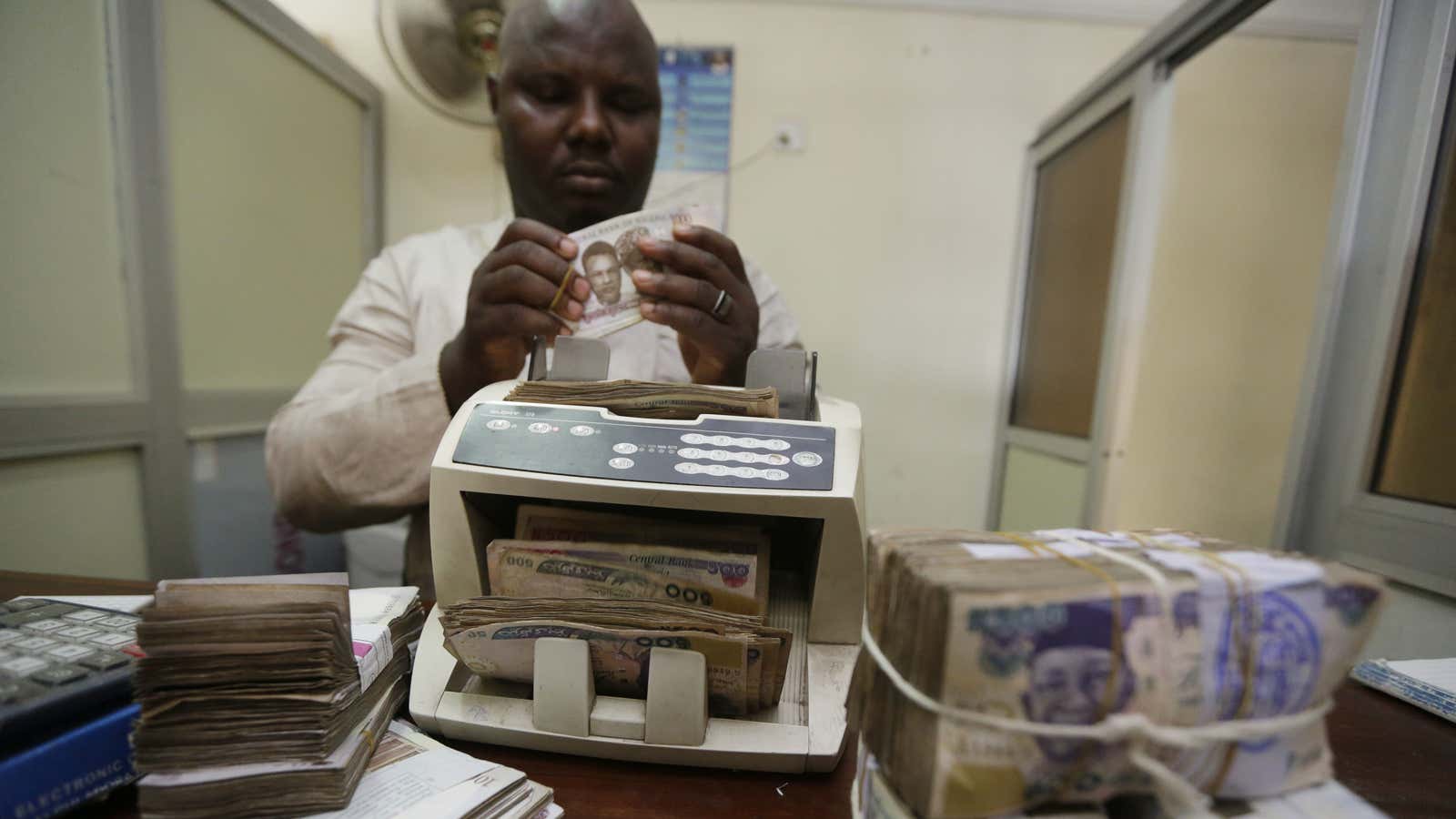At a time when most of the world is focused on driving down the cost of remittances, Nigeria’s Central Bank appears intent on keeping them high. On Aug. 2, the bank issued a new directive (pdf) which will oblige all but three of Nigeria’s money transfer operators (MTOs) to suspend operations, and could reverse years of progress made in cutting the costs of remittances. The directive will also severely reduce competition among money transfer operators in Nigeria.
This is not the first time the bank has cracked down on the large number of remittances companies with operations in Nigeria. Last year it tightened the conditions (pdf, p. 5) on mobile money transfers, requiring operators to be operational in 20 countries, have a net worth of $1 billion, and have at least 10 years of experience working in the industry. Despite the stiff rules, some MTOs found workarounds—typically, combining multiple transfers to Nigeria and selling them in bulk to Nigerian partners that needed the foreign exchange in swap deals.
But the latest directive mandates all MTOs to “remit foreign currency to the agent banks for disbursement in naira” to customers, after which the foreign currency proceeds will be sold to foreign exchange operators. That targets money transfer companies that work through local partners and don’t have their own infrastructure to remit foreign currency to banks. Effectively it means all but a handful of MTOs that fulfill the central bank’s stiff requirements will have to close.
“Nigeria has been… the most competitive market in Africa due to the presence of hundreds of remittance companies in the country,” says Ismail Ahmed, CEO of WorldRemit, one of the MTOs likely to be affected. “This decision creates an anti-competitive market that could certainly move remittance prices higher.”
The central bank explains the move as part of a strategy to “maintain stability of the exchange rate.” Nigeria’s naira has been battered as a result of the fall in the price of oil, its main export, and there is a gap between the official and the black-market exchange rates. But Nonso Obikili, research associate at Economic Research Southern Africa, says it’s “unlikely” the new policy will stabilize rates; if anything, the reverse. ”It creates more inefficiency,” Obikili says. “It is likely to increase demand at the black market because the former bulk buyers from the MTOs have to buy from somewhere else.”
A policy that reduces competition and doesn’t even achieve its stated goal seems seems ill thought out. But it fits with the bank’s previous policies, which seemed “designed to serve the interests of already established financial players,” says Obikili.
Generally, Nigeria is ranked sixth among the top remittance-receiving countries in the world (pdf, p. 29). In 2015, the World Bank pegged remittances received in Nigeria at $21 billion.
Predictably, remittance companies have expressed shock at the sweeping changes. “We’ve asked for clarification as to what it is and what has led to this [decision],” Ahmed says. Ahmed also said that they haven’t “received clarification as to how the Central Bank of Nigeria wants companies to proceed” in future.
Sudhesh Giriyan, chief operating officer of UK-based Xpress Money, also joined the criticism. “Taking advantage of their position, these brands could soon boost their cost of remittances to suit their palate, neglecting the benefit and convenience of customers,” Giriyan said. This, he added, could lead customers “to resort to illegal channels of money transfer to avoid digging a huge hole in their pockets to send money to their families and friends in Nigeria.”
